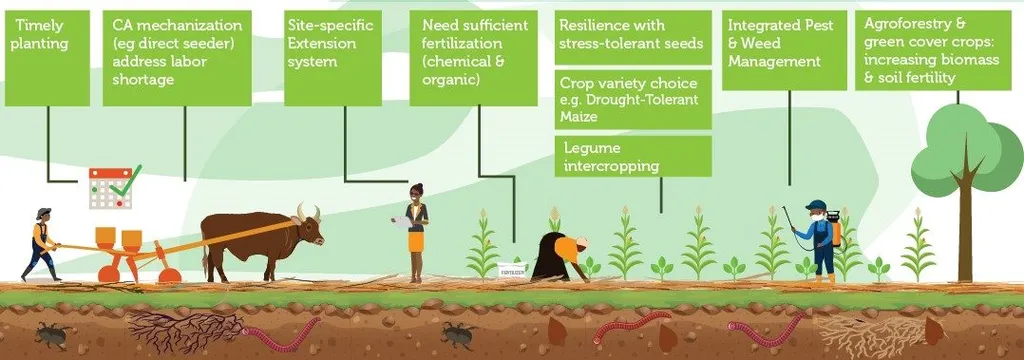In the heart of Africa, where the sun’s intensity and erratic weather patterns are becoming increasingly unpredictable, vegetable farmers are grappling with the harsh realities of climate change. A recent systematic review, led by Esdras Obossou of the National University of Agriculture’s School of Rural Sociology and Agricultural Extension, sheds light on the adaptation strategies being employed in vegetable farming systems across the continent. The study, published in Communications Earth & Environment (translated as “Communications Earth and Environment”), offers a comprehensive look at how these strategies address climate risks and what more can be done to bolster the resilience of African vegetable farming systems.
The review, which analyzed 60 studies, reveals that most adaptation efforts are concentrated in rural areas of Western and Eastern Africa. These efforts primarily target water-related hazards such as drought, flooding, and erratic precipitation. Technological responses, such as the adoption of drought-resistant varieties and improved irrigation systems, dominated the landscape. Behavioral responses, like adjusting planting dates and crop diversification, were also prevalent. However, ecosystem-based and institutional strategies were relatively underreported.
One of the most striking findings was the lack of focus on urban agriculture, despite its significance for employment, income, and food and nutrition security. “Urban agriculture is a critical component of the food system, yet it remains underexplored in climate adaptation research,” Obossou noted. This gap highlights a significant opportunity for future research and policy interventions.
The study also found that only one-third of the studies assessed the effectiveness of adaptation measures, mostly through efficiency and utilitarian framing. This suggests a need for more rigorous evaluation of adaptation strategies to ensure they are meeting their intended goals.
So, what does this mean for the future of vegetable farming in Africa? The findings underscore the need for strengthened institutional strategies and expanded research into urban contexts. By doing so, stakeholders can enhance the resilience of African vegetable farming systems and contribute to sustainable food and nutrition security.
The commercial implications are substantial. As climate change continues to impact agricultural productivity, the development and deployment of effective adaptation strategies will be crucial for maintaining food supply chains and ensuring economic stability. Investors, policymakers, and agricultural businesses should take note of these findings and consider how they can support and scale up successful adaptation practices.
In the words of Obossou, “Strengthening institutional strategies and expanding research to urban contexts are crucial for enhancing the resilience of African vegetable farming systems and achieving sustainable food and nutrition security.” This call to action resonates not only within the academic community but also among those in the energy sector, where sustainable practices and climate resilience are increasingly becoming priorities.
As we look to the future, the insights from this systematic review will undoubtedly shape the trajectory of climate adaptation research and practice in African vegetable farming systems. By addressing the identified gaps and building on the successes, we can pave the way for a more resilient and sustainable agricultural sector.

